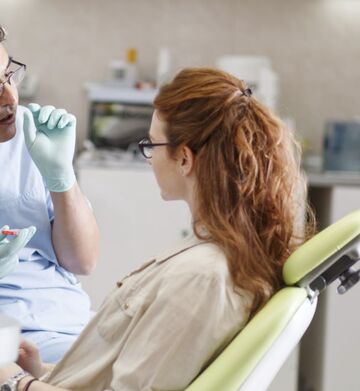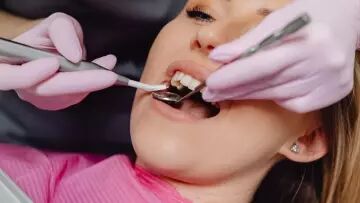Each year mouth cancer takes the lives of 2,000 people in the UK, which is more people than die from ovarian and testicular cancer combined! Last year over 7,000 people were diagnosed with the disease, which is equivalent to 18 people every single day! Mouth cancer is also one of the few cancers expected to see an increase in diagnoses in the coming years.
Although there are several risk factors, including smoking, excess alcohol consumption, poor diet and the Human Papilloma Virus, that will increase your chance of developing the disease, mouth cancer can affect anyone. Therefore, it is important to know the signs to look out for.
Symptoms to get checked out
Ulcers that do not heal– a broken area of skin or ulcer that does not heal within three weeks is one of the two most common symptoms of mouth cancer. They may not necessarily be painful.
Persistent discomfort or pain in your mouth – ongoing pain or discomfort in the mouth for which you cannot fix a specific cause is the other most common symptom of mouth cancer.
White or red patches in your mouth or throat – an abnormal-looking patch in your mouth or throat can be a sign of precancerous changes in the cells. Areas of abnormal cells may look white or red. These patches are not cancer, but if left untreated can lead to cancer developing.
A white or red patch in the mouth can also be caused by fungal infections such as thrush. The white patches of thrush usually rub away to leave a sore red patch underneath. If this is the case your dentist will prescribe an anti-fungal treatment and if the patches go away they are not related to cancer.
Difficulty Swallowing – Mouth cancer can cause pain or a burning sensation when chewing or swallowing food or you may feel that food is sticking in your throat. Difficulty swallowing can be associated with a number of different conditions and it is important that if you experience this that you get it checked out by a doctor or a dentist.
Speech Problems – Cancer in your mouth or throat can affect your voice. It may be quieter or sound like you have a cold. You may also have difficulty in pronouncing certain words.
A lump in the neck – you may find you have a lump in your neck caused by an enlarged lymph node. A hot, red painful lump is often a sign of infection, lumps that come and go are also unlikely to be cancerous. Cancerous lumps will normally start small and grow over time.
Other symptoms – other symptoms can include but are not limited to a lump in the mouth or throat, unusual bleeding or numbness in the mouth, loose teeth for no apparent reason or difficulty moving the jaw.
Many of these symptoms can be related to other less serious conditions but it is important that if you experience any of the above that you get it checked out by your dentist or doctor. Survival rates over 5 years for mouth cancer when caught early are very good reaching as high as 90% however this is drastically reduced to just 50% when the diagnosis is made late.
So, if in doubt get it checked out!
If you are worried about any of these symptoms do not hesitate to ask the dentist when you next visit. Call Leigh Dental Centre today on 01702 472929 and book a consultation.
Contact us to make an appointment
Exclusive Offer
Airflow stain removal from our hygienist


Stress and oral health
07.04.2023

6 Tips To Get Rid Of Bad Breath
04.02.2023
Time for you perfect smile?
Book your consultation today
When visiting our practice you know you are visiting the dental professionals trained to the highest standards. You are greeted by our welcoming staff, who share the same aim, to make your visit with us as comfortable and stress free as possible.





